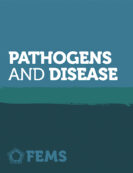Urgent! You need to know more about microbiology
Microbes and their activities have huge and mostly positive effects on humans, the ecosystem, and the entire planet.
Microbes (bacteria, fungi, viruses, and others such as archaea and protists), also called microorganisms, are the life support system of the biosphere, being largely responsible for primary food production (photosynthesis), along with plants, and waste recycling (decomposition of dead organic matter), often with the help of worms and insects.
At the same time, our everyday actions – both as individuals and as communities – influence the microbes in and around us, and in turn our environment and well-being.
It is essential that microbes and their activities are considered by individuals, families, communities, politicians, and policymakers when taking decisions in everyday life or while in office. For this, having the necessary knowledge – microbiology literacy – is crucial.
However, unlike other subjects such as economics, health, and transportation, knowledge of relevant microbial activities, how they impact our lives, and how they may be harnessed for the benefit of humankind is lacking in the general population and in decision makers.
An understanding of key microbial activities is as essential for transitioning from childhood to adulthood as some subjects currently taught at school, and must therefore be acquired during general education.
To enhance microbiology literacy in society, through its incorporation into education curricula, Prof. Kenneth Timmis and colleagues wrote an editorial in which they propose a basic teaching concept and format that are adaptable to all ages, from pre-school to high school, and place key microbial activities in the contexts of how they affect our everyday lives, of relevant Grand Challenges facing humanity and planet Earth, and of sustainability and UN Sustainable Development Goals.
The proposed initiative will be possible by the collaborative participation of microbiologists, microbiological learned societies and microbiology-literate professionals as well as educators, policy makers, business leaders and relevant governmental and non-governmental agencies.
Do you want to know more?
To have more information on microbes, their activities, and why you need to care about them, read the editorial by Prof. Kenneth Timmis The urgent need for microbiology literacy in society.
All but one of the FEMS journals are now fully open access (OA), with one journal, FEMS Microbiology Letters remaining a subscription journal with free-to-publish and OA options. Open access is key to supporting the FEMS mission of disseminating high quality research as widely as possible: when high quality, peer reviewed sound science is open access, anyone, anywhere in the world with an internet connection, can read it.







